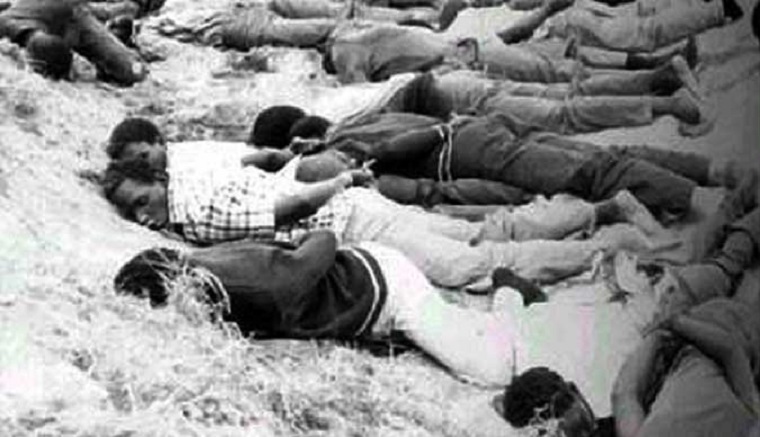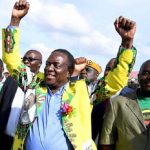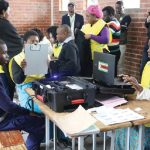 Zimbabwe President Emmerson Mnangagwa’s bid to seal his position in a 30 July election is meant to mark a break with Robert Mugabe’s violence-tainted rule. But massacres that took place decades ago are coming back to haunt him.
Zimbabwe President Emmerson Mnangagwa’s bid to seal his position in a 30 July election is meant to mark a break with Robert Mugabe’s violence-tainted rule. But massacres that took place decades ago are coming back to haunt him.
Mnangagwa, a longtime Mugabe lieutenant who took over after a coup last year, narrowly avoided a grenade attack last month which wounded one of his vice presidents and a minister at a rally in Bulawayo.
He was quick to absolve the locals of any blame, pointing a finger at disgruntled Mugabe loyalists instead, but the location was significant: rights groups say army offensives in the area in the 1980s killed 20 000 people and memories remain raw.
Mnangagwa was in charge of national security at the time of the 1982-87 assault in Matabeleland, and analysts said the Bulawayo rally blast could have been calculated to implicate Mnangagwa’s Ndebele opponents and stir up trouble.
Asked whether Bulawayo people were responsible for the blast, Mnangagwa told state television: “The people of Bulawayo? No. They love me. (It’s) people outside Bulawayo.”
That helped ease worries of a security crackdown.
But voters in Bulawayo remain distrustful of their new leader, who is known by his nickname “Ngwena”, Shona for crocodile, an animal famed and feared in Zimbabwean lore for stealth and ruthlessness. Mnangagwa says he is soft as wool.
“It is good that Mnangagwa realises that people in Bulawayo are peaceful and will not use violence. I hope the government will not use this terrorist act as an excuse to target those who oppose this regime,” said Thamsanqa Dube, a 36-year-old resident of Emganwini suburb in Bulawayo.
The army massacres, known as ‘Gukurahundi’, Shona name for ‘early rain that washes away the chaff’, are a major reason Matabeleland’s voters have rejected Mnangagwa’s ZANU-PF party in national elections since 2000. Many of them want an apology.
With no reliable polls, it is not clear whether the area’s 861 701 voters, 15 percent of the national total, will punish Mnangagwa any more than they did Mugabe in the past.
But in an election under international observation for the first time in years, he may need them more than Mugabe did.
Mnangagwa’s role during Gukurahundi is not clear; his critics say that at the time, his security ministry passed on intelligence used by soldiers to target victims; officials did not respond to requests for comment.
Continued next page
(236 VIEWS)


